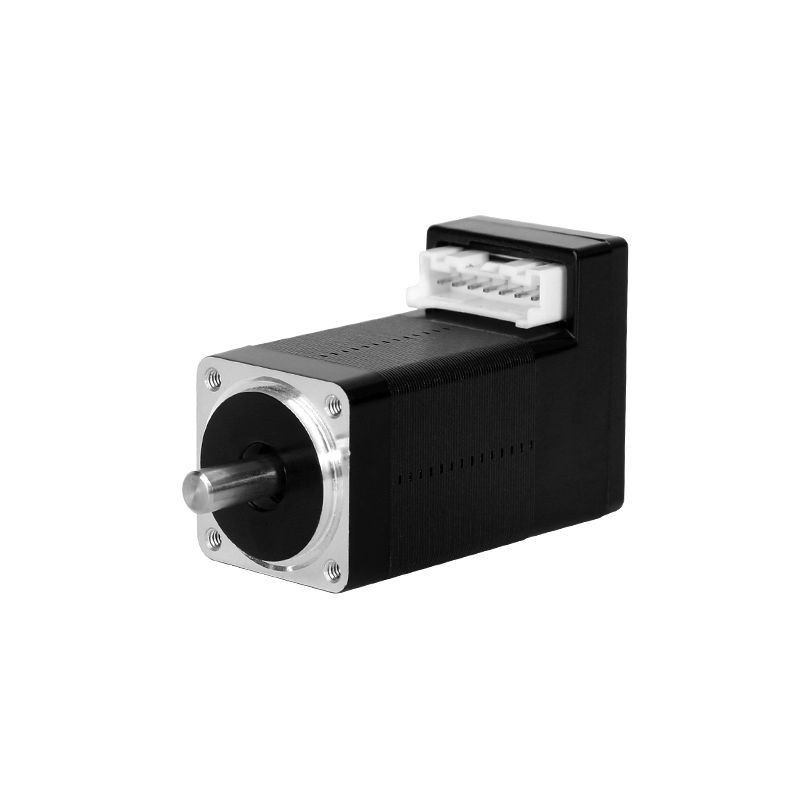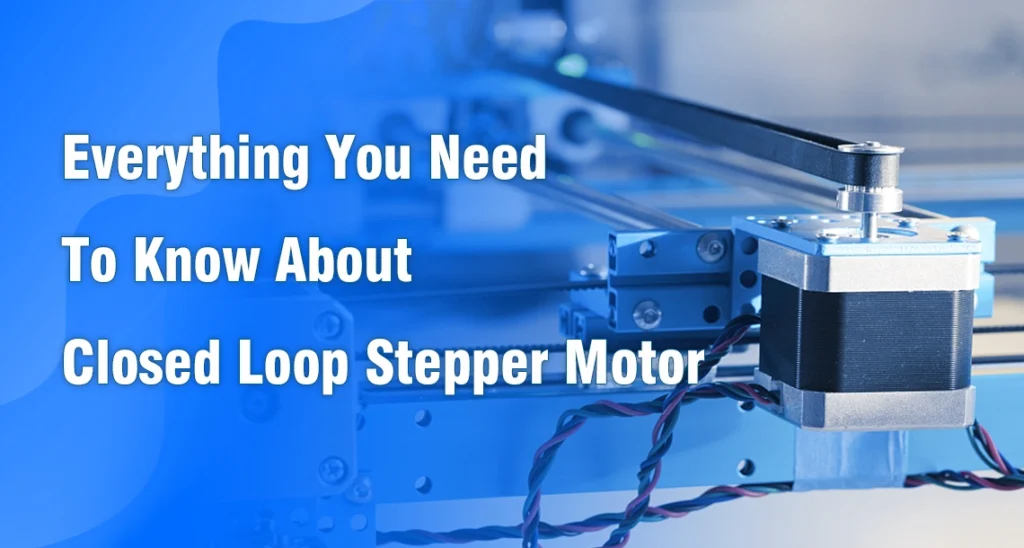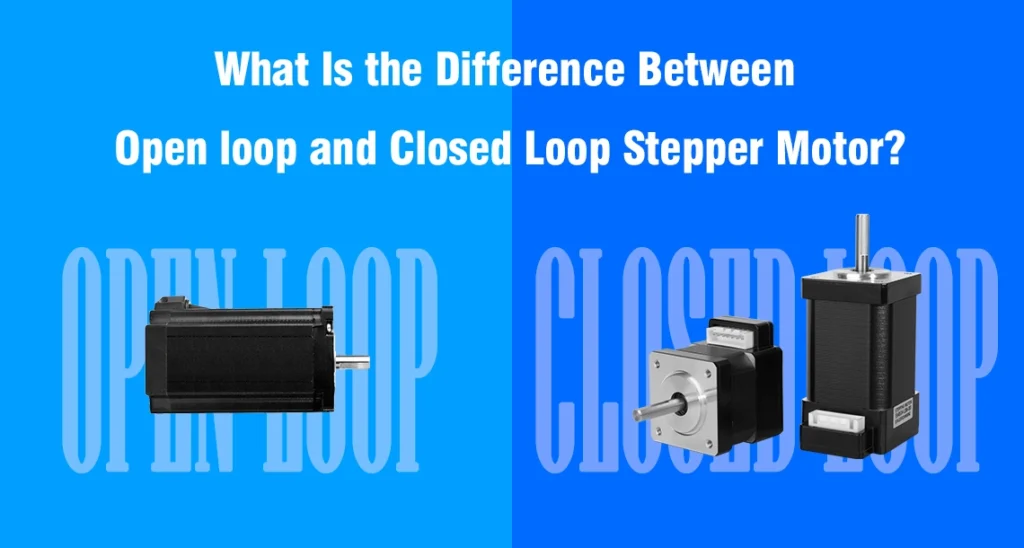In today’s rapidly evolving technological landscape, Closed Loop Stepper Motors has emerged as a crucial component in various industries, offering precise control and reliability.
This article delves into the future trends of closed loop stepper motor technology, exploring advancements that promise to reshape industrial automation, robotics, and other sectors.
Current State of Closed Loop Stepper Motor Technology
In the current landscape, closed loop stepper motor technology has already made substantial strides. Manufacturers have developed sophisticated systems that integrate encoders or other feedback devices to provide real-time positional information to the controller. This feedback loop enables the controller to make adjustments to the motor’s operation, ensuring that it maintains the desired position and velocity accurately.

Current Applications of Closed Loop Stepper Motors
Closed Loop Stepper Motors finds extensive applications across diverse industries, including:
– Industrial Automation
In manufacturing environments, closed loop stepper motors are utilized for precise control of conveyor belts, robotic arms, and assembly lines, enhancing productivity and efficiency.
– Robotics
Closed loop stepper motors play a vital role in robotic systems, enabling precise movement and positioning in applications such as pick-and-place operations, welding, and inspection.
– 3D Printing
The precise control offered by closed loop stepper motors is instrumental in 3D printing, ensuring high-quality prints with intricate details and minimal errors.
– CNC Machines
In computer numerical control (CNC) machines, closed loop stepper motors provide accurate positioning and movement control for milling, cutting, and engraving tasks.
– Telecommunications
Closed loop stepper motors play a crucial role in telecommunications infrastructure, where they are used in antenna positioning systems, satellite dish alignment, and fiber optic cable splicing equipment. These motors ensure precise alignment and movement control, enabling optimal signal reception and transmission in communication networks.
– Semiconductor Manufacturing
Closed loop stepper motors are essential components in semiconductor manufacturing processes, such as wafer handling systems, lithography equipment, and wire bonding machines. These motors enable precise positioning and movement control, contributing to the production of high-quality semiconductor chips with tight tolerances and specifications.
Future Trends in Closed Loop Stepper Motor Technology
– Miniaturization and Increased Torque
Future advancements are expected to lead to the miniaturization of closed loop stepper motors while simultaneously increasing their torque output, making them ideal for compact and high-torque applications.
-Advanced sensor
One such trend is the integration of advanced sensors, such as optical encoders and resolver systems, to provide more accurate feedback and enhance overall performance.
– Enhanced Precision and Accuracy
The adoption of artificial intelligence (AI) and machine learning algorithms in closed loop stepper motor control. These algorithms can analyze real-time data from sensors and optimize motor operation dynamically, leading to improved efficiency and precision in motion control applications., enabling them to meet the demands of increasingly complex tasks in the manufacturing field.
– Integration with IoT and Industry 4.0
Closed loop stepper motors are anticipated to be integrated with Internet of Things (IoT) platforms and Industry 4.0 technologies, enabling remote monitoring, predictive maintenance, and seamless connectivity within smart manufacturing environments.
– Energy Efficiency and Sustainability
Future iterations of closed loop stepper motors are expected to prioritize energy efficiency and sustainability, with advancements in motor design and control algorithms aimed at reducing power consumption and environmental impact.
– Adaptive Control and Machine Learning
Emerging trends include the implementation of adaptive control algorithms and machine learning techniques to optimize the performance of closed loop stepper motors in real-time, adapting to changing operating conditions and improving overall efficiency.
Future Applications of Closed Loop Stepper Motor Technology
Advanced Robotics: In the future, closed loop stepper motors are expected to play a more significant role in advanced robotics applications, such as humanoid robots, exoskeletons, and autonomous vehicles. These motors will provide precise control and motion capabilities, enabling robots to perform complex tasks with greater dexterity and efficiency.
Autonomous Vehicles: Closed loop stepper motors will play a crucial role in the development of autonomous vehicles, providing precise control for navigation, sensing, and actuation systems.
Medical Devices: In the medical sector, future closed loop stepper motors will power next-generation devices such as surgical robots, prosthetics, and diagnostic equipment, enabling minimally invasive procedures and improving patient outcomes.
Aerospace and Defense: Closed loop stepper motors will find applications in aerospace and defense systems, including unmanned aerial vehicles (UAVs), missile guidance systems, and satellite positioning mechanisms, where reliability and accuracy are paramount.
Smart Manufacturing: Future closed loop stepper motors will be integrated into smart manufacturing systems, enabling adaptive control, predictive maintenance, and real-time optimization of production processes, leading to increased efficiency and cost savings.
Renewable Energy: In renewable energy systems such as wind turbines and solar tracking systems, closed loop stepper motors will facilitate precise positioning and tracking of renewable energy sources, maximizing energy output and efficiency.
Entertainment and Gaming: Closed loop stepper motors will enhance the realism and immersion of entertainment and gaming experiences, powering motion simulators, haptic feedback devices, and augmented reality platforms.
Precision Agriculture: In agriculture, future closed loop stepper motors will drive innovations in precision farming equipment, such as autonomous tractors, drones, and robotic harvesters, improving crop yield and resource efficiency.
Environmental Monitoring: Closed loop stepper motors will be used in environmental monitoring systems to precisely control sensors and actuators for applications such as air and water quality monitoring, pollution control, and ecosystem conservation.
Conclusion
In conclusion, the future of closed loop stepper motor technology holds immense promise, with advancements in miniaturization, precision, integration, efficiency, and adaptability poised to revolutionize various industries. By embracing these trends, businesses can unlock new opportunities for innovation and efficiency in automation and beyond.



